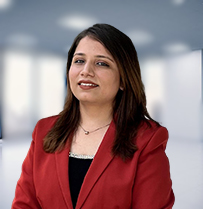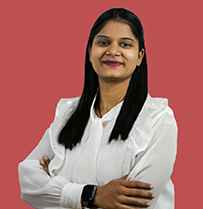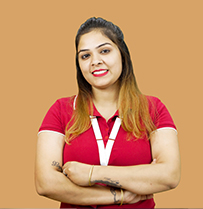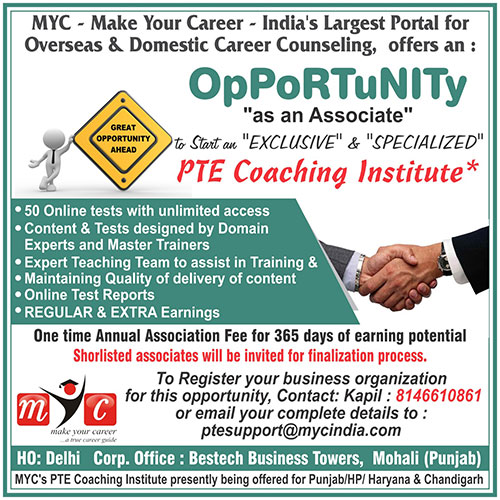
GATE Graduate Aptitude Test in Engineering
- Test Level-: International Level
- Eligibility-: Graduation
- Duration-:3 Hours
- Stream-: Engineering
- Medium-: English
- Examination Mode-: Online
- Total Questions-: 65
GATE 2024
IISc Bangalore has released the GATE 2024 hall ticket. IISc GATE Admit Card 2024 link has been also activated at gate2024.iisc.ac.in. Candidates can download their hall ticket using GATE admit card 2024 download link provided below.
GATE 2024 exam will be conducted on February 3, 4, 10, and 11, 2024. The GATE 2024 exam date branch-wise has been announced for all 30 papers. Candidates can check here paper-wise GATE 2024 exam dates for all 30 papers. The GATE 2024 mock test link has also been activated on the GATE official website. Candidates preparing for the exam can solve the GATE mock test 2024 to practice for the exam.
Candidates can check here the GATE 2024 syllabus, exam pattern, eligibility criteria, and paper details. GATE 2023 question paper pdf, and the GATE previous year paper with solutions are available here. The exam will have a total of 65 questions carrying 100 marks, out of which 10 questions carrying a total of 15 marks will be from General Aptitude (GA) and the remaining questions from the subject selected by the candidate. The GATE exam will have Multiple Choice Questions (MCQ), Multiple Select Questions (MSQ), and Numerical Answer Type (NAT) Questions.
About Exam
Graduate Aptitude Test in Engineering (GATE) is a national level exam that primarily tests the comprehensive understanding of various undergraduate subjects in Engineering/ Technology/ Architecture/ Science/ Commerce/ Arts. GATE 2024 will be a computer-based test (CBT) which is being organized by the Indian Institute of Technology Kanpur. The exam will be conducted by IISc Bangalore and seven IITs (IIT Bombay, IIT Delhi, IIT Guwahati, IIT Kanpur, IIT Kharagpur, IIT Madras, IIT Roorkee), on behalf of the National Coordination Board – GATE, Department of Higher Education, Ministry of Education (MoE), Government of India (GoI).
Qualified GATE score can be used for seeking admission and/or financial assistance to : (i) Master’s programs and direct Doctoral programs in Engineering/ Technology/ Architecture/ Science/ Commerce/ Arts; and (ii) Doctoral programs in relevant branches of Arts and Science, in the institutions supported by the MoE and other Government agencies. GATE score is also used by some colleges and institutions for giving admission to students without MoE scholarship/assistantship. Further, many Public Sector Undertakings (PSUs) have been using the GATE score in their recruitment process.
GATE 2024 Eligibility Criteria
Candidates aspiring for the GATE exam must meet all the GATE exam eligibility conditions before filling the application form. Students can check the eligibility criteria below:
Educational Qualification: To apply for GATE 2024, candidates must possess either of the below-mentioned undergraduate degrees. Students who are studying in the third or final years of any undergraduate degree are also eligible to appear for the exam.
- BE/BTech
- BPharma
- BArch
- BSc (Research)/BS
- Professional Society Examination (equivalent to BE/BTech/BArch)
- MSc/MA/MCA or equivalent
- Integrated ME/MTech
- Integrated MSc/Integrated BS-MS
- Integrated ME/MTech or Dual Degree (after Diploma or 10+2)
Pass Percentage: No minimum pass percentage criteria is defined as GATE 2024 eligibility.
Age Limit: There is no age limit defined to apply for the GATE exam.
Nationality: The candidate must be an Indian citizen.
GATE Eligibility Criteria for International Students: Candidates belonging to Nepal, Bangladesh, Singapore, Sri Lanka, Ethiopia, and the United Arab Emirates are also eligible to apply for GATE 2024.
Pattern
|
Particulars |
Details |
|
Examination Mode |
Computer Based Test (CBT) [will be conducted at select centers in select cities] |
|
Duration |
3 Hours* |
|
Number of Subjects (Papers) |
29 |
|
Sections |
General Aptitude (GA) + |
|
Type of Questions |
(a) Multiple Choice Questions (MCQ) |
|
Questions for testing these abilities |
(a) Recall |
|
Number of Questions |
10 (GA) + 55 (subject) = 65 Questions |
|
Distribution of Marks in all Papers EXCEPT papers AR, CY, EY, GG, MA, PH, ST, XH and XL |
General Aptitude: 15 Marks + |
|
Distribution of Marks in papers AR, CY, EY, GG, MA, PH, ST, XH and XL |
General Aptitude: 15 Marks + |
|
Marking Scheme |
Questions carry 1 mark and 2 marks |
|
Negative Marking |
For a wrong answer chosen in a MCQ, there will be negative marking. |
GATE counselling
The GATE counselling is conducted by COAP for admission to the MTech courses offered by IITs and CCMT for admission to MTech programmes offered by NITs, IIITs, GFTIs, and CFTIs. Eligible candidates need to participate in the GATE 2024 counselling as per schedule. The counselling process incorporates various stages like registration, choice filling, choice locking, seat allotment, document verification, etc. After going through these stages successfully, candidates will get admission to an institute.
Through GATE, candidates can seek admission or financial assistance for admission to the Master's programmes and doctoral programmes in Engineering, Architecture and relevant branches of Science. Qualifying GATE is mandatory for admission to the courses offered at MHRD-supported institutes and other government agencies. These institutes include IITs, IISc, NITs,IIITs, Government-Funded Technical Institutes (GFTIs) and other universities in India. GATE scores are also used by Public Sector Units by recruitment
-
 es_2023.pdf
es_2023.pdf -
 ceed_2023_question_paper.pdf
ceed_2023_question_paper.pdf -
 CEED_2023_Answer_Key.pdf
CEED_2023_Answer_Key.pdf -
 ssc-cgl-tier-1-papers-2020-held-on-13-aug-2021-shift-1-general-awareness.pdf
ssc-cgl-tier-1-papers-2020-held-on-13-aug-2021-shift-1-general-awareness.pdf -
 ssc-cgl-tier-1-papers-2020-held-on-13-aug-2021-shift-1-english-comprehension.pdf
ssc-cgl-tier-1-papers-2020-held-on-13-aug-2021-shift-1-english-comprehension.pdf -
 eng_sub10_2015.pdf
eng_sub10_2015.pdf -
 6a0f92c8-323d-4ca1-8d26-304082a6d860.pdf
6a0f92c8-323d-4ca1-8d26-304082a6d860.pdf -
 a3ea3cda-8da4-4767-9713-26293c2cd9b5.pdf
a3ea3cda-8da4-4767-9713-26293c2cd9b5.pdf -
 Detailed CEN 01-2024 English final 1900 hrs.pdf
Detailed CEN 01-2024 English final 1900 hrs.pdf -
 74846bos60515-itt.pdf
74846bos60515-itt.pdf -
 2023062534.pdf
2023062534.pdf -
 NEET-PG-2022-Question-Paper-With-Solutions.pdf
NEET-PG-2022-Question-Paper-With-Solutions.pdf -
 NEET_PG_2023_Question_Paper_Memory_based__9bcfaf0b43ff5727e1578f807694288e.pdf
NEET_PG_2023_Question_Paper_Memory_based__9bcfaf0b43ff5727e1578f807694288e.pdf -
 MCAER-PG-CET-Plant-Pathology-Model-Paper.pdf
MCAER-PG-CET-Plant-Pathology-Model-Paper.pdf
GATE Exam 2024 Dates
|
Dates |
Upcoming Exam Dates |
|
18 Nov '23 - 24 Nov '23 |
GATE 2024 Application Correction |
|
4 Jan '24 - 2 Feb '24 |
GATE 2024 Admit Card |
|
3 Feb '24 - 4 Feb '24 |
GATE 2024 Exam |
|
10 Feb '24 - 11 Feb '24 |
GATE 2024 Exam |
|
16 Feb '24 - 21 Feb '24 |
GATE 2024 Response Sheet |
|
21 Feb '24 - 25 Feb '24 |
GATE 2024 Answer Key |
|
16 Mar '24 - 31 May '24 |
GATE 2024 Result |
|
21 Mar '24 - 31 May '24 |
GATE 2024 Scorecard Download |
• Candidates have to register and fill the application via ONLINE mode ONLY at GATE 2024 website GATE 2024 | GRADUATE APTITUDE TEST IN ENGINEERING 2024 (iisc.ac.in)
• The entire process of filling up of the application form and uploading of certificates/ documents etc.is in ONLINE mode only. The candidates should NOT send any hard copy of their application forms/ documents etc. to IIT Kanpur or any of the zonal GATE offices.
• The payment of application fees is through electronic mode. If a candidate wishes to appear for TWO papers, the fees to be paid by the candidate will be TWICE of that mentioned for a single
paper.
• The Admit Cards for GATE 2023 would be available for download on the GATE 2023 website of IIT Kanpur only. No printed copy of the Admit Cards will be posted to the candidates.
GATE Exam 2024
The fee for the exam for various categories is as follows.
|
Category |
Fees |
|
Female candidates |
Rs.900/- |
|
SC / ST / PwD candidates |
Rs.900 |
|
All other candidates |
Rs.1800/- |
Note: Rs. 500/- is an ‘extended fee’, in case the duration is extended.
GATE Exam 2024 Syllabus
The gate exam will consist of questions from:
- General Aptitude (GA) component common in all papers
- Verbal Ability: English grammar, sentence completion, verbal analogies, word groups, instructions, critical reasoning.
- Engineering: The question will be from the relevant subject of the trade.
Syllabus Content
GA General Aptitude
Verbal Aptitude
Basic English grammar: tenses, articles, adjectives, prepositions, conjunctions, verb-noun agreement, and other parts of speech Basic vocabulary: words, idioms, and phrases in context Reading and comprehension Narrative sequencing
Quantitative Aptitude
Data interpretation: data graphs (bar graphs, pie charts, and other graphs representing data), 2- and 3-dimensional plots, maps, and tables Numerical computation and estimation: ratios, percentages, powers, exponents and logarithms, permutations and combinations, and series Mensuration and geometry Elementary statistics and probability
Analytical Aptitude
Logic: deduction and induction, Analogy, Numerical relations and reasoning
Spatial Aptitude
Transformation of shapes: translation, rotation, scaling, mirroring, assembling, and grouping Paper folding, cutting, and patterns in 2 and 3 dimensions
BM Biomedical Engineering
Engineering Mathematics:
Linear Algebra: Matrix algebra, systems of linear equations, Eigenvalues and Eigenvectors.
Calculus: Mean value theorems, theorems of integral calculus, partial derivatives, maxima and minima, multiple integrals, Fourier series, vector identities, line, surface and volume integrals, Stokes, Gauss and Green's theorems.
Differential Equations: First order linear and nonlinear differential equations, higher order linear differential equations with constant coefficients, method of separation of variables, Cauchy's and Euler's equations, initial and boundary value problems, and solution of partial differential equations.
Analysis of Complex Variables: Analytic functions, Cauchy's integral theorem and integral formula, Taylor's and Laurent's series, residue theorem.
Probability and Statistics: Sampling theorems, conditional probability, mean, median, mode and standard deviation, random variables, discrete and continuous distributions: normal, Poisson and binomial distributions. Tests of Significance, statistical power analysis, and sample size estimation. Linear Regression and correlation analysis;
Numerical Methods: Matrix inversion, numerical solutions of nonlinear algebraic equations, iterative methods for solving differential equations, numerical integration. Electrical Circuits: Voltage and Current Sources - independent, dependent, ideal and practical; v-i relationships of resistor, inductor and capacitor; transient analysis of RLC circuits with dc excitation; Kirchoff’s laws, superposition, Thevenin, Norton, maximum power transfer and reciprocity theorems; Peak, average and rms values of ac quantities; apparent, active and reactive powers; phasor analysis, impedance and admittance; series and parallel resonance, realization of basic filters with R, L and C elements, Bode plot.
Signals and Systems: Continuous and Discrete Signal and Systems - Periodic, aperiodic and impulse signals; Sampling theorem; Laplace and Fourier transforms; impulse response of systems; transfer function, frequency response of first and second order linear time invariant systems, convolution, correlation. Discrete time systems - impulse response, frequency response, DFT, Z - transform; basics of IIR and FIR filter.
Analog and Digital Electronics: Basic characteristics and applications of diode, BJT and MOSFET; Characteristics and applications of operational amplifiers - difference amplifier, adder, subtractor, integrator, differentiator, instrumentation amplifier, buffer, filters and waveform generators. Number systems, Boolean algebra; combinational logic circuits - arithmetic circuits, comparators, Schmitt trigger, encoder/decoder, MUX/DEMUX, multi-vibrators; Sequential circuits - latches and flip flops, state diagrams, shift registers and counters; Principles of ADC and DAC; Microprocessor- architecture, interfacing memory and input- output devices.
Measurements and Control Systems: SI units, systematic and random errors in measurement, expression of uncertainty -accuracy and precision index, propagation of errors; PMMC, MI and dynamometer type instruments; dc potentiometer; bridges for measurement of R, L and C, Q-meter. Basics of control system - transfer function.
Sensors and Bioinstrumentation: Sensors - resistive, capacitive, inductive, piezoelectric, Hall effect, electro chemical, optical; Sensor signal conditioning circuits; application of LASER in sensing and therapy. Origin of bio potentials and their measurement techniques - ECG, EEG, EMG, ERG, EOG, GSR, PCG, Principles of measuring blood pressure, body temperature, volume and flow in arteries, veins and tissues, respiratory measurements and cardiac output measurement. Operating principle of medical equipment-sphygmomanometer, ventilator, cardiac pacemaker, defibrillator, pulse oximeter, hemodialyzer Electrical Isolation (optical and electrical) and Safety of Biomedical Instruments.
Human Anatomy and Physiology: Basics of cell, types of tissues and organ systems; Homeostasis; Basics of organ systems - musculoskeletal, respiratory, circulatory, excretory, endocrine, nervous, gastro-intestinal and reproductive.
Medical Imaging Systems: Basic physics, Instrumentation and image formation techniques in medical imaging modalities such as X-Ray, Computed Tomography, Single Photon Emission Computed Tomography, Positron Emission Tomography, Magnetic Resonance Imaging, Ultrasound.
Biomechanics: Kinematics of muscles and joints - free-body diagrams and equilibrium, forces and stresses in joints, biomechanical analysis of joints, Gait analysis; Hard Tissues - Definition of Stress and Strain, Deformation Mechanics, structure and mechanical properties of bone - cortical and cancellous bones; Soft Tissues - Structure, functions, material properties, viscoelastic properties, Maxwell & Voight models; Biofluid mechanics - Flow properties of blood in the intact human cardiovascular system.
Biomaterials: Basic properties of biomaterials - Metallic, Ceramic, Polymeric and Composite; Fundamental characteristics of implants - biocompatibility, bioactivity, biodegradability; Basics of drug delivery; Basics of tissue engineering. Biomaterial characterization techniques - Rheology, Atomic Force Microscopy, Electron Microscopy, Transmission Electron Microscopy Fourier Transform Infrared Spectroscopy.
Note: For detail syllabus visit the official website i.e GATE 2024 | GRADUATE APTITUDE TEST IN ENGINEERING 2024 (iisc.ac.in)
DownloadGATE Reference Book
1. CS GATE REFERENCE Book
SUBJECT |
REFERENCE BOOK |
|
MATHEMATICS |
|
|
DATA STRUCTURE, ALGORITHMS & PROGRAMMING |
|
|
OPERATING SYSTEMS |
|
|
DISCRETE MATH AND GRAPH THEORY |
|
|
DIGITAL LOGIC |
|
|
COMPUTER ORGANIZATION |
|
|
DATABASE MANAGEMENT SYSTEM |
|
|
COMPUTER NETWORK |
|
|
THEORY OF COMPUTATIONS |
|
|
COMPILER DESIGN |
|
|
SOFTWARE ENGINEERING AND WEB TECHNOLOGY |
|
2. EC GATE REFERENCE Book
SUBJECT |
REFERENCE BOOK |
|
ENGINEERING MATHEMATICS |
|
|
SIGNALS AND SYSTEMS |
|
|
CONTROL SYSTEMS |
|
|
ANALOG CIRCUITS |
|
|
NETWORK THEORY |
|
|
ELECTRONIC DEVICE & Circuits (EDC) |
|
|
DIGITAL CIRCUITS |
|
|
ELECTROMAGNETIC THEORY (EMT) |
|
|
COMMUNICATION SYSTEMS |
|
|
GENERAL APTITUDE |
|
3. EE GATE REFERENCE Book
SUBJECT |
REFERENCE BOOK |
|
ENGINEERING MATHEMATICS |
|
|
SIGNALS AND SYSTEMS |
|
|
CONTROL SYSTEMS |
|
|
ELECTRIC CIRCUITS AND FIELDS |
|
|
ELECTRONIC DEVICE & Circuits (EDC) |
|
|
ANALOG CIRCUITS |
|
|
DIGITAL CIRCUITS |
|
|
ELECTRICAL AND ELECTRONIC MEASUREMENTS |
|
|
ELECTRICAL MACHINES |
|
|
POWER ELECTRONICS AND DRIVES |
|
4. IN GATE REFERENCE Book
|
SUBJECT |
REFERENCE BOOK |
|
ENGINEERING MATHEMATICS |
|
|
SIGNALS, SYSTEMS AND COMMUNICATIONS |
|
|
CONTROL SYSTEMS AND PROCESS CONTROL |
|
|
BASICS OF CIRCUITS AND MEASUREMENT SYSTEMS |
|
|
ANALOG CIRCUITS |
|
|
DIGITAL CIRCUITS |
|
|
TRANSDUCERS, MECHANICAL MEASUREMENT AND INDUSTRIAL INSTRUMENTATION |
|
|
ELECTRICAL AND ELECTRONIC MEASUREMENTS |
|
|
ANALYTICAL, OPTICAL AND BIOMEDICAL INSTRUMENTATION |
|
5. ME GATE REFERENCE Book
SUBJECT |
REFERENCE BOOK |
|
MATHEMATICS |
|
|
ENGINEERING MECHANICS |
|
|
STRENGTH OF MATERIALS |
|
|
THEORY OF MACHINES |
|
|
MACHINE DESIGN |
|
|
FLUID MECHANICS |
|
|
HEAT TRANSFER |
|
|
THERMODYNAMICS |
|
|
MANUFACTURING ENGINEERING |
|
|
INDUSTRIAL ENGINEERING |
|
How to prepare for GATE 2024?
- GATE examination consists only of multiple and numerical answer type questions, hence only correct answer fetches marks.
- Practice previous year question papers and analyze the weak topics and concentrate more on those topics. Candidates must try to solve the papers in a given time limit to obtain an idea as to how many questions are solved within the allotted time.
- Impart equal emphasis on both theory and numerical problems.
- Browse through the GATE syllabus for topics allotted more weightage and prepare them.
- Group Study is an effective way to brush up knowledge about technical topics with fellow partners and also helps to explore new techniques and methods to better understand the topics.
- Do not make wild guess as there is negative marking associated with the questions.
- Prepare the list of important definitions, equations, derivations, theorems, laws in every subject.
- Pay more attention while attempting linked and common data questions.
GATE 2024 Cutoff
The GATE 2024 cutoff will be announced by the exam conducting authority along with the result. The cutoff/ qualifying marks are the minimum marks required by the candidates to for the counselling and seat allotment process. Students can take a look at previous year GATE cutoffs for reference below:
GATE 2023 cutoff
|
Paper Code |
Unreserved |
OBC- (NCL)/ EWS |
SC/ ST/ PwD |
|
CS: Computer Science and Information Technology |
25 |
22.5 |
16.6 |
|
ME: Mechanical Engineering |
28.1 |
25.2 |
18.7 |
|
EC: Electronics and Communications Engineering |
25 |
22.5 |
16.6 |
|
EE: Electrical Engineering |
30.7 |
27.6 |
20.4 |
|
CE: Civil Engineering |
30.4 |
27.3 |
20.2 |
|
CH: Chemical Engineering |
25.3 |
22.7 |
16.8 |
|
IN: Instrumentation Engineering |
42.4 |
38.1 |
28.2 |
|
MA: Mathematics |
27.3 |
24.5 |
18.2 |
|
AR: Architecture and Planning |
37.3 |
33.5 |
24.8 |
How to Download GATE 2024 Admit Card
Students can download their GATE admit card 2024 by following the simple steps:
- Visit the official website GATE (iisc.ac.in))
- Enter your GATE Enrollment ID/Email ID and Password and click Submit
- Click on the link available to download the GATE Admit Card
- Download and take multiple coloured printouts of the document
- Check for discrepancies, if any
 es_2023.pdf
es_2023.pdf
.png)
; ?>images/int (3).png)
 International Experts
International Experts




